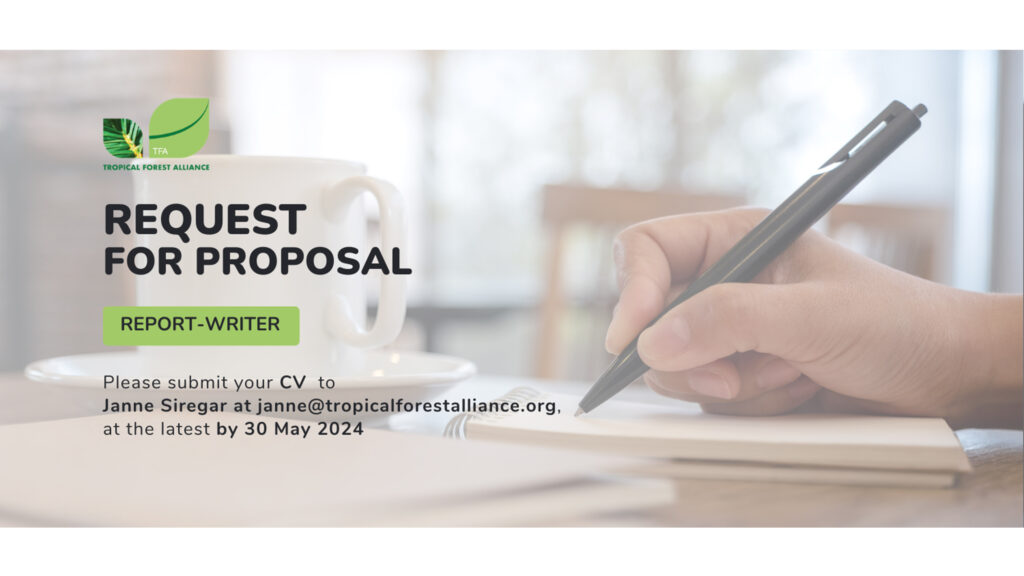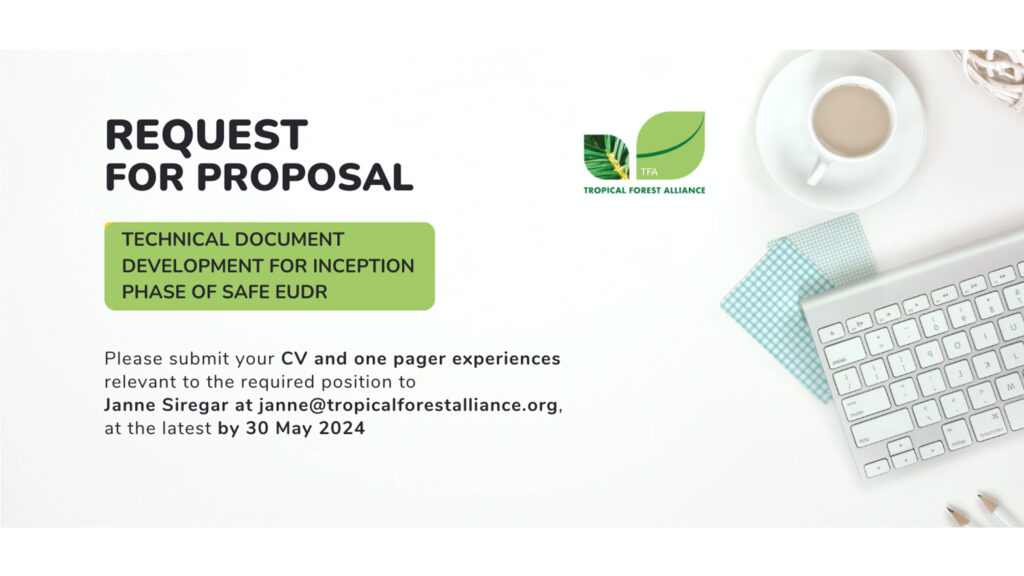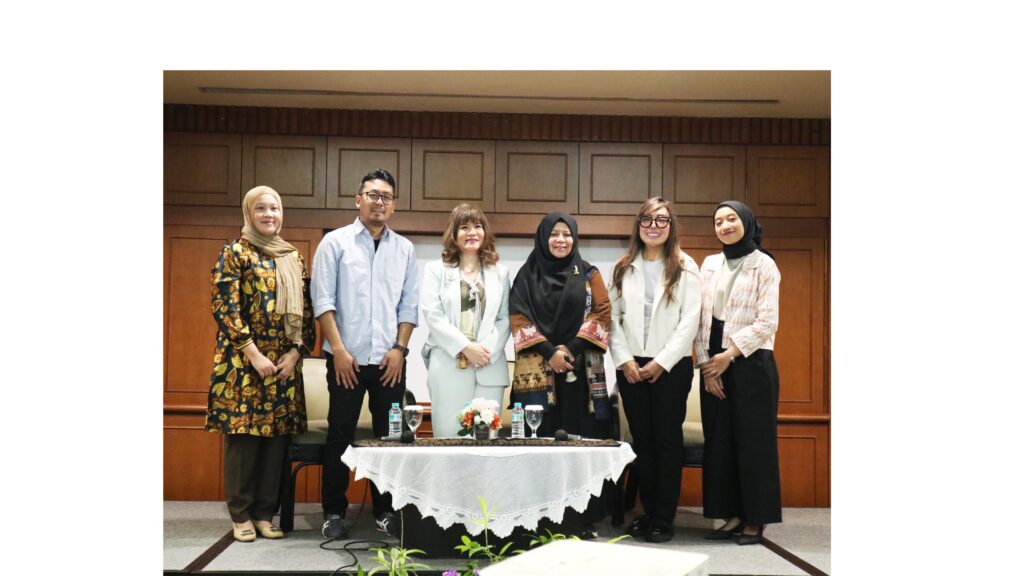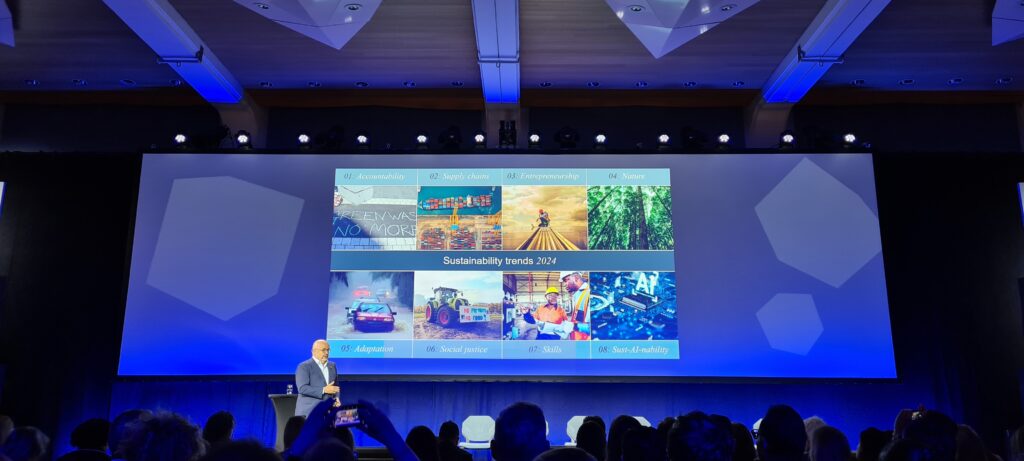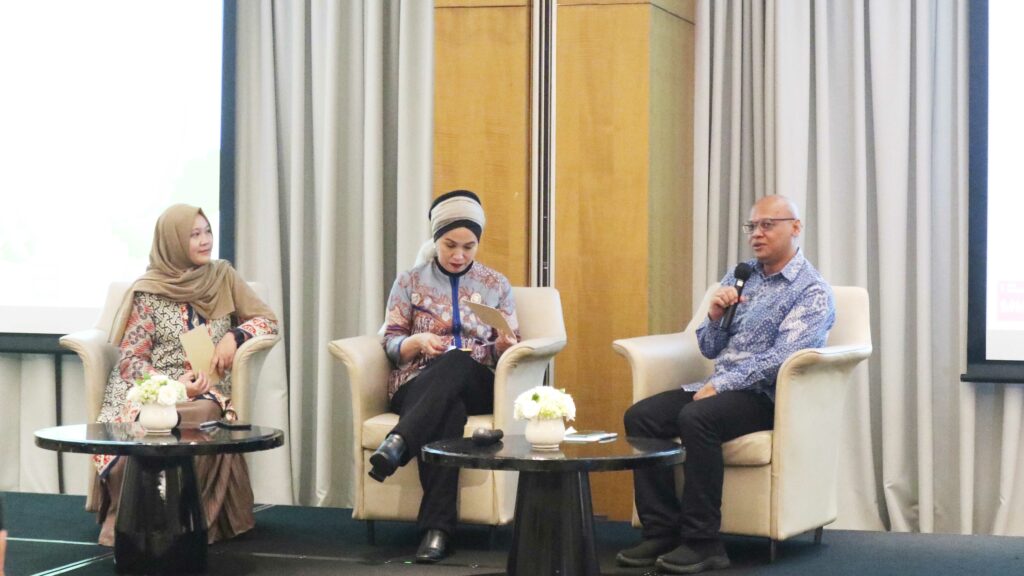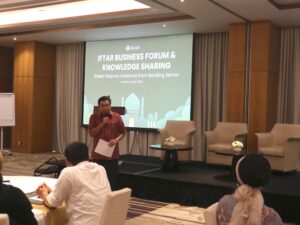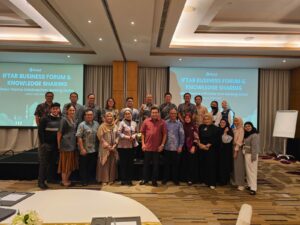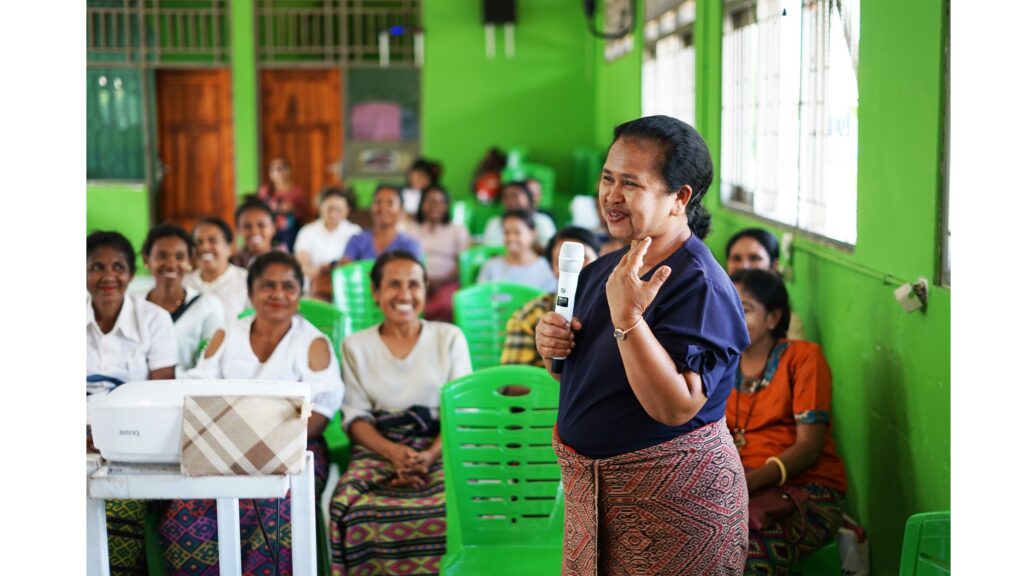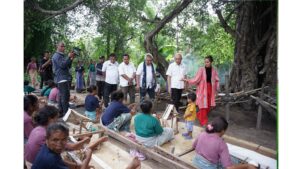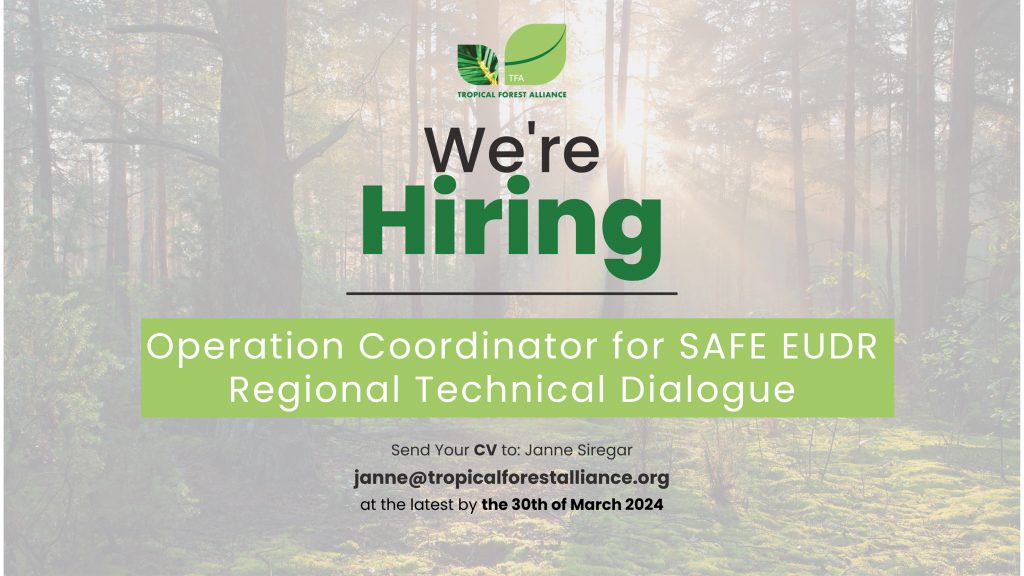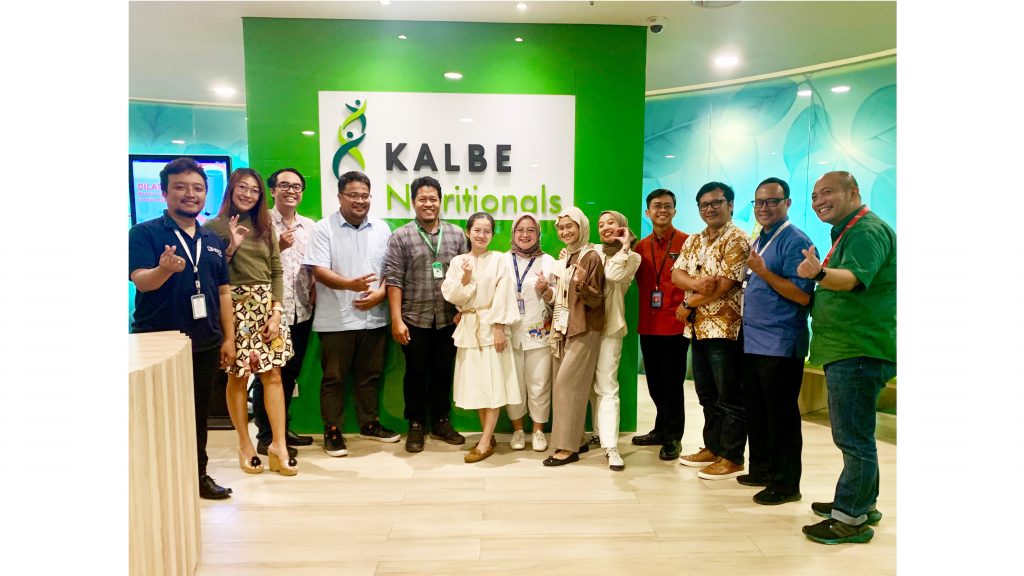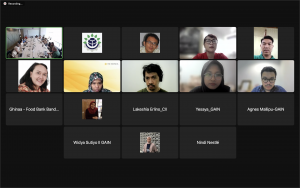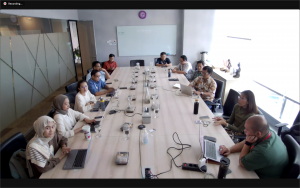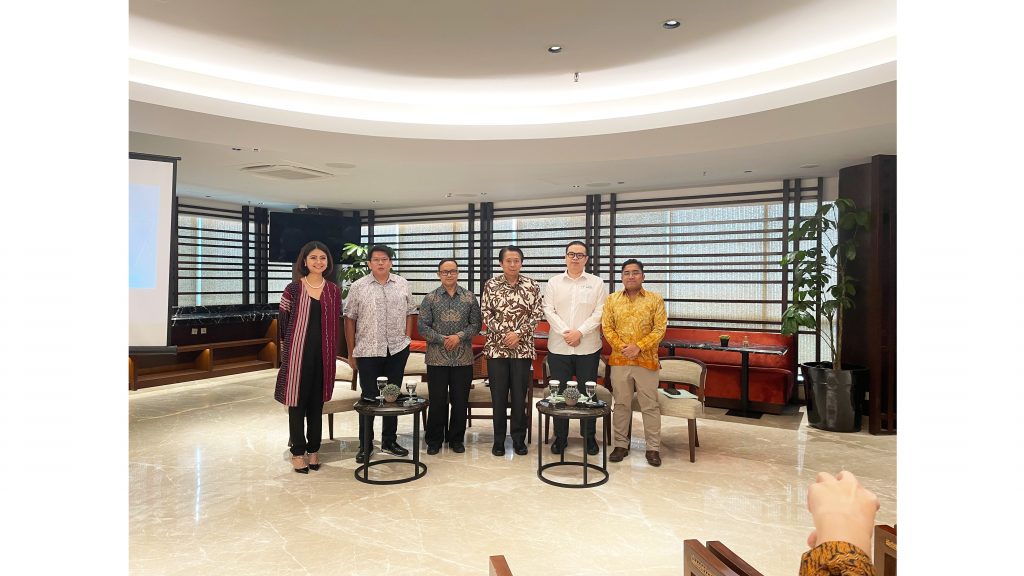In her opening remarks, Laksmi Prasvita, IBCSD Executive Board Member and Head of Communications, Public Affairs, Science and Sustainability Bayer Indonesia, said, “As a business association promoting sustainable business, IBCSD is committed to driving business action towards a nature-positive economy.” Laksmi also underlined the importance of businesses to increasingly recognize the importance of nature in decision making, from operations, value chains, and investments.
COP 15 held 18 months ago in Montreal showed that the world has begun to realize the importance of addressing the issue of the biodiversity crisis, as Eva Zabey, CEO of Business for Nature, mentioned in her opening remarks. The conference agreed to adopt a Global Biodiversity Framework that calls on all parties to collectively halt and reverse the loss of nature before 2030. This need for cross-sector collaboration is a key motivation for Business for Nature, which has worked with WEF and WBCSD to develop a set of guidelines tailored to 12 sectors, and launched a global campaign, ‘It’s Now for Nature’ for companies. “We need a critical mass to take urgent and decisive action, and we are here to help,” Eva explained.
The main speaker from the government sector was Dr. Badiah, S.Si, M.Si. Through her presentation, Badiah underlined that Indonesia, with its abundant biodiversity, needs to prioritize sustainable principles in its utilization so that no damage or population degradation occurs in accordance with laws and regulations. Badiah also encouraged collaboration between various stakeholders, especially in the development of sustainable funding mechanisms, bioprospection, and the use of the latest technology in conservation efforts.
In line with that, the keynote speaker from the business sector, Shinta Widjaja Kamdani emphasized that the risk of losing nature and biodiversity for the global economy is quite significant, up to around USD 8.2 trillion per year until 2050 based on research from PwC in 2020. However, behind that, there is great economic potential when businesses adopt the value of nature in their business. Shinta explained, “There are 4 high-level business action steps driven by global business coalitions and associations, which can be learned by businesses in Indonesia, namely A-C-T-D (Assess, Commit, Transform, Disclose)”.
The event continued with a panel discussion moderated by the host. This panel featured speakers from various sectors. The first speaker was Anggi Pertiwi Putri, Planner at the Directorate of Environment of Bappenas. Anggi explained the latest information on the Indonesian Biodiversity Strategy and Action Plan (IBSAP). “Bappenas encourages the existence of a Biodiversity Management Index that is in line with the IBSAP national targets. We involve various penta-helix stakeholders to provide input into the development of IBSAP 2024-2045”.
The next speaker was Pallavi Kalita, Asia Lead of Business for Nature, who further explained the sectoral action guidelines for business to halt and reverse nature loss and the role of business in biodiversity action. “Businesses are at different stages in their nature-positive journey. We, together with WEF and WBCSD, developed customized guidance based on 12 business sectors, to meet the unique needs of businesses in their interactions with nature in order to accelerate business action for nature”.
The discussion continued with a presentation from Dr. Indah Budiani, Executive Director of IBCSD. Indah explained a number of business strategies carried out in addressing nature and biodiversity issues. “Through the Indonesia Business and Biodiversity Platform (IBBP), IBCSD together with other stakeholders supports businesses through increasing awareness and capacity, conducting policy advocacy, research, and program cooperation related to nature and biodiversity issues,” she continued.
The last speaker was Ahfi Wahyu Hidayat, TFCA Kalimantan Forest Conservation and Climate Change Specialist at Yayasan KEHATI. Ahfi shared a number of experiences collaborating with businesses in biodiversity efforts. “We have great potential regarding biodiversity, but there are many challenges that need to be faced. KEHATI has 3 ecosystem approaches, namely Forestry, Agriculture, and Marine, coupled with sustainable investment,” explained Ahfi.
The event concluded with a call to action, emphasizing that collaborative efforts are critical to achieving a nature-positive economy for all by 2030.
***
[ID]
Indonesia Business and Biodiversity Platform: Mempercepat Aksi Bisnis Untuk Mencapai Ekonomi yang Positif bagi Alam untuk Semua pada Tahun 2030
Jakarta, Hari Keanekaragaman Hayati Internasional, 22 Mei 2024 – Indonesia Business Council for Sustainable Development (IBCSD) bersama dengan koalisi bisnis global, Business for Nature, dengan dukungan dari APRIL Group, mengadakan dialog bisnis dengan tema: Mempercepat Aksi Bisnis Untuk Mencapai Ekonomi yang Positif bagi Alam untuk Semua pada Tahun 2030. Diselenggarakan secara hybrid di Hotel Millenium Sirih Jakarta, acara ini mengundang berbagai pemangku kepentingan dari berbagai sektor untuk mendorong perubahan sistemik melalui kolaborasi dan berbagi praktik terbaik. Acara dipandu oleh seorang reporter dan pembawa acara berita, Yohana Margaretha.
Selain untuk meningkatkan kesadaran sektor bisnis terkait isu keanekaragaman hayati, dalam acara ini juga dilakukan peluncuran Indonesia Business and Biodiversity Platform (IBBP), yang diharapkan dapat menjadi wadah sektor bisnis dan organisasi terkait untuk saling berbagi pengetahuan dan wawasan aksi-aksi untuk alam serta mendorong kolaborasi antar sektor. Peluncuran platform ini disaksikan oleh perwakilan dari sektor pemerintah, Dr. Badiah, S.Si, M.Si, selaku Kasubdit Direktorat Jenderal Konservasi Sumber Daya Alam dan Ekosistem, Kementerian Lingkungan Hidup dan Kehutanan, dan perwakilan dari sektor bisnis, Shinta Widjaja Kamdani selaku Honorary Trustee IBCSD dan CEO Sintesa Group.
Dalam sambutan pembuka, Laksmi Prasvita, Anggota Dewan Eksekutif IBCSD yang juga Head of Communications, Public Affairs, Science and Sustainability Bayer Indonesia, mengatakan, “Sebagai asosiasi bisnis yang mendorong bisnis berkelanjutan, IBCSD berkomitmen untuk mendorong aksi bisnis menuju nature positive economy atau ekonomi yang positif terhadap alam”. Laksmi juga menggarisbawahi pentingnya bisnis untuk semakin mengakui pentingnya aspek alam dalam pengambilan keputusan, mulai dari operasi, rantai nilai, dan investasi.
COP 15 yang diadakan pada 18 bulan yang lalu di Montreal menunjukkan bahwa dunia sudah mulai sadar pentingnya mengatasi isu krisis keanekaragaman hayati, seperti yang disebutkan Eva Zabey, CEO Business for Nature, dalam sambutan pembuka. Dalam konferensi tersebut sepakat mengadopsi Kerangka Kerja Keanekaragaman Hayati Global yang mengajak semua pihak untuk secara kolektif menghentikan dan membalikkan kehilangan alam sebelum tahun 2030. Perlunya kolaborasi lintas sektor ini lah yang menjadi motivasi utama Business for Nature, yang telah dengan berkolaborasi bersama WEF dan WBCSD untuk mengembangkan seperangkat panduan yang disesuaikan dengan 12 sektor, dan meluncurkan kampanye global, ‘It’s Now for Nature’ untuk perusahaan. “Kita membutuhkan massa yang kritis untuk mengambil tindakan yang mendesak dan menentukan, dan kami ada di sini untuk membantu,” jelas Eva.
Sebagai pembicara utama dalam acara ini dari sektor pemerintah, yakni Dr. Badiah, S.Si, M.Si. Melalui paparannya, Badiah menggarisbawahi bahwa Indonesia dengan kekayaan keanekaragaman hayati yang sangat melimpah, perlu mengedepankan prinsip-prinsip berkelanjutan dalam pemanfaatannya agar tidak terjadi kerusakan atau degradasi populasi sesuai dengan peraturan perundangan. Badiah juga mendorong adanya kolaborasi antara berbagai pemangku kepentingan, terutama dalam pengembangan mekanisme pendanaan berkelanjutan, bioprospeksi, hingga penggunaan teknologi terbaru dalam upaya konservasi.
Selaras dengan itu, pembicara utama dari sektor bisnis, Shinta Widjaja Kamdani menekankan bahwa risiko kehilangan alam dan keanekaragaman hayati bagi perekonomian global cukup signifikan, hingga sekitar USD 8.2 triliun per tahun sampai 2050 berdasarkan penelitian dari PwC tahun 2020. Namun, dibalik itu, ada potensi perekonomian yang besar saat bisnis mengadopsi nilai alam dalam bisnisnya. Shinta mengatakan, “Ada 4 langkah aksi bisnis tingkat tinggi yang didorong oleh koalisi dan asosiasi bisnis tingkat global, yang dapat menjadi pembelajaran oleh pelaku bisnis di Indonesia, yakni A-C-T-D (Asses, Commit, Transform, Disclose)”.
Acara dilanjutkan dengan diskusi panel yang dimoderatori oleh pembawa acara. Panel ini menghadirkan narasumber dari berbagai sektor. Pembicara pertama adalah Anggi Pertiwi Putri, Perencana Direktorat Lingkungan Hidup Bappenas. Anggi menjelaskan tentang informasi terbaru mengenai Strategi dan Rencana Aksi Keanekaragaman Hayati Indonesia (IBSAP). “Bappenas mendorong adanya Indeks Pengelolaan Keanekaragaman Hayati yang sejalan dengan target nasional IBSAP. Kami melibatkan berbagai sektor pentahelix untuk memberikan masukan terhadap penyusunan IBSAP 2024-2045”.
Pembicara selanjutnya adalah Pallavi Kalita, Asia Lead of Business for Nature, yang menjelaskan lebih lanjut terkait panduan aksi sektoral bagi bisnis untuk menghentikan dan membalikkan kehilangan alam serta peran bisnis dalam aksi keanekaragaman hayati. “Bisnis berada di tahap yang berbeda dalam perjalanan positif-alam mereka. Kami bersama WEF dan WBCSD menyusun panduan khusus berdasarkan 12 sektor bisnis, untuk memenuhi kebutuhan unik bisnis dalam interaksi mereka terhadap alam dalam rangka mempercepat aksi bisnis untuk alam”.
Diskusi dilanjutkan dengan paparan dari Dr. Indah Budiani, Direktur Eksekutif IBCSD. Indah menjelaskan sejumlah strategi bisnis yang dilakukan dalam mengatasi persoalan alam dan keanekaragaman hayati. “Melalui Indonesia Business and Biodiversity Platform (IBBP), IBCSD bersama stakeholder lainnya mendukung bisnis melalui peningkatan kesadaran dan kapasitas, melakukan advokasi kebijakan, penelitian, hingga kerjasama program terkait isu alam dan keanekaragaman hayati”, lanjutnya.
Pembicara terakhir yakni Ahfi Wahyu Hidayat, Spesialis Konservasi Hutan dan Perubahan Iklim TFCA Kalimantan Yayasan KEHATI. Ahfi menceritakan sejumlah pengalaman berkolaborasi dengan bisnis dalam upaya keanekaragaman hayati. “Kita punya potensi yang besar terkait keanekaragaman hayati, namun banyak tantangan yang perlu dihadapi. KEHATI memiliki 3 pendekatan ekosistem, yakni Kehutanan, Pertanian, dan Kelautan, ditambah dengan investasi berkelanjutan”, jelas Ahfi.
Acara diakhiri dengan ajakan untuk mengambil tindakan nyata, dengan menekankan bahwa upaya kolaborasi sangat penting untuk mencapai ekonomi yang positif bagi alam untuk semua pada tahun 2030.
Kontak
Nama : Nurina Izazi
Jabatan : Communications and Member Relations Manager
Email : [email protected]
Tentang Indonesia Business Council for Sustainable Development (IBCSD)
Indonesia Business Council for Sustainable Development (IBCSD) adalah sebuah asosiasi yang dipimpin oleh para CEO perusahaan yang beroperasi di Indonesia, yang memiliki komitmen yang sama untuk mempromosikan pembangunan berkelanjutan melalui pertumbuhan ekonomi yang berkelanjutan, keseimbangan ekologi, dan kemajuan sosial. IBCSD memfasilitasi kepemimpinan bisnis yang berkelanjutan dengan mempromosikan praktik-praktik terbaik, bermitra dengan pemerintah dan masyarakat sipil, serta memberikan solusi bagi kebijakan Indonesia dalam isu-isu keberlanjutan.
